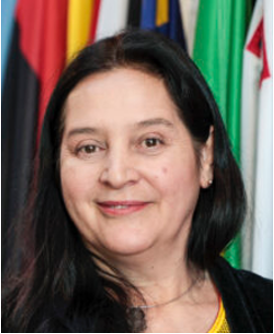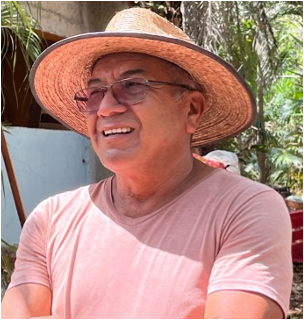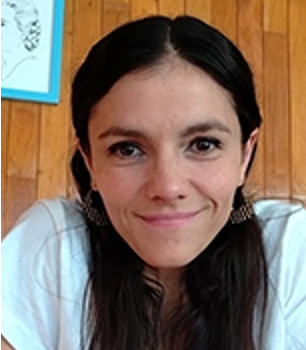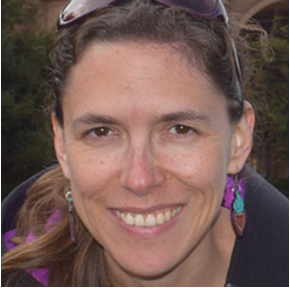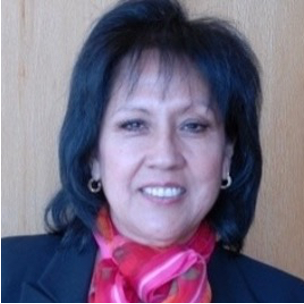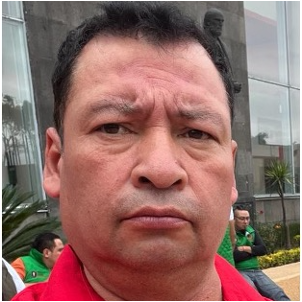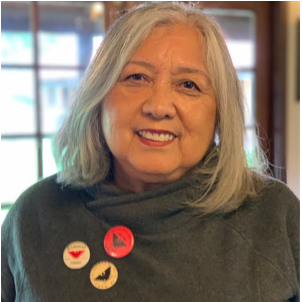|
|
The weekly newsletter of the Mexico Solidarity Project |
|
Every issue archived online at mexicosolidarityproject.org |
|
January 08, 2025 |
|
|
|
2024: Steering the Ship of State |
|
Meizhu Lui, for the editorial team |
|
|
When Andrés Manuel López Obrador won the presidency in 2018, we were jubilant!
But we weren’t sure whether he could turn the ship of state. After all, Mexico had sailed in one direction for 70 years under the same flag, that of the PRI. Then Morena, only a 4-year-old, wrested the wheel from the old captains. But with all the navigation settings locked in place, could they actually chart a different course?
The final year of his presidency was 2024, and what he accomplished was beyond expectations. He expertly fended off pirates from abroad and mutineers from within. He collected from the rich what was due and gave it to the poor. But perhaps his biggest success lay in explaining to the Mexican people why for so long the rich became richer and the poor poorer, arming them with the how-to necessary to stay the course toward the “4th transformation.”
In mid-2024, the presidential election between the brilliant, tough, unflappable Claudia Sheinbaum and the clownish, clueless fraudster Xochitl Galvez ended when the right-wing campaign collapsed under the weight of its own hypocrisy. Her term started in October 2024, and in her first three months, Claudia won the respect and love of the Mexican crew.
What does 2025 augur? If Mexico were left alone, the year would be smooth sailing. But there’s an orange pirate ship fast approaching, looking to grab the wheel and steal the goods. It will be more important than ever for Mexico’s friends around the world, but especially in the US, the belly of the beast, to join forces to beat back the raiders. At stake is not just Mexico’s future, but the future of progressive politics in both countries.
It’s 2025. Let’s put our hands to the wheel!
|
|
For a deeper dive into current news and analysis in English, check out our Catch the entertaining and informative English podcast, Soberanía!, with José Luis Granados Ceja and Kurt Hackbarth. |
|
Don’t miss an issue! Sign up for a free Mexico Solidarity Bulletin subscription. |
|
|
2024: A Watershed Year for Mexico |
|
This week we highlight several interviews from 2024 that described AMLO's lasting achievements and Claudia's rise to the presidency. In 2024 we also covered migration, trade, drug trafficking and other issues that will become bigger problems for Mexico with Trump in office. Six years is not a long time, and Mexico will inevitably need to address their internal weaknesses.
The Mexico Solidarity Project's New Year's resolution: We will strengthen our support for Mexico's sovereignty. International solidarity is what enables the workers of the world to win! |
|
AMLO SEALS HIS LEGACY |
|
August 21, 2024: AMLO'S Signature Tren Maya Project
Dr. Cecilia Elizondo is a member of the ECOSUR (El Colegio de la Frontera Sur) agroecology group. She’s a member of the UN Committee on World Food Security, one of 15 world experts tasked with prioritizing measures to end world hunger and malnutrition. Her research on the Tren Maya determined its impact on local food systems and the environment. |
|
|
“When Mayans peopled the Yucatán, they relied on nature’s processes to grow food. Ancient irrigation canals captured floodwaters rather than allowing the water to sink into the ground. But in modern times, when roads were built, that water flow was cut off. It’s been charged that the Tren Maya will damage the environment. Ha! The criticism of the Mayan Train is about politics. It’s not really about the environment. The Tren plan created almost 500,000 hectares for reforestation and restoration projects, benefiting 167,000 farmers. Most of the trains are electric and will replace many of the carbon-emitting cars and trucks.” |
|
|
|
|
November 06, 2024: Taking Control: Energy for the People
Lala Peñaranda and Sean Sweeney coordinate Trade Unions for Energy Democracy, a network of 120 unions from 48 countries that’s developing a union approach to energy sovereignty and climate protection. Mexico leads the way! |
|
|
“In terms of climate concerns, when private profit is the driver, it’s impossible for a country to wean itself from a diet of fossil fuels and meet the modest goals of the Paris Agreement. Mexico just passed a constitutional reform that returns the energy sector to public control — where it was in the original 1917 constitution. This is a turning point and a huge victory — not just for Mexico but as a model for other countries of the world.”
|
|
|
|
May 22, 2024: Sembrando Vida: Seeding Life, Supporting Farmers
Victor Poot is a Mayan farmer in the rural area between the village of Felipe Castillo Puerto and the Tren Maya station being built in Quintana Roo. He participates in the Sembrando Vida program, which creates permanent jobs, rescues small farmers, promotes reforestation, and builds sustainable communities. Mexico successfully exported this model to Central America. |
|
|
“Sembrando Vida identified two and a half hectares (about 6 acres) of my land to use. The program required three kinds of planting: the first is milpa, the traditional way of raising corn, which is to plant it together with beans and squash; this method doesn’t deplete the soil. The second is to grow fruit trees. The third is to plant trees as raw material for wood products. These three kinds of planting provide food to eat today, products to sell and trees for lumber in the future.”
|
|
CLAUDIA SHEINBAUM WINS THE PEOPLE'S HEARTS |
|
February 28, 2024: Inside Morena candidate Claudia Sheinbaum’s campaign
Renata Turrent is subdirector of the online magazine Sentido Común (Common Sense) and a professor at UNAM. She was chosen to be on Claudia Sheinbaum’s campaign team as the campaign’s liaison with academic sectors. This reflected Claudia’s style of creating teams to listen to the people, not to lecture them. Renata now heads the national TV channel, Canal Once. |
|
|
“Claudia’s team was half women. As a woman, you see the world differently. For one thing, you think about impacts on women and children. AMLO initiated the law that requires an equal number of men and women in Congress. His ministry is also half women. Under former president Peña-Nieto, only two out of nineteen ministers were women, and before AMLO’s presidency, only ten were ministers in the whole history of Mexico.”
|
|
|
|
|
July 10, 2024: What a Mexican Election Day in Chicago!
Born in Mexico City, Manuel Castro is the son of a Bracero Program migrant family. He’s now living in Chicago and studying political science and public administration. A community organizer, supporter of Morena and fighter for human and political rights of Mexicans in both countries, he helped organize the vote in Chicago for Mexico’s next president. |
|
“We have three ways to vote: by mail, online, or in person at the consulate. We encouraged people to vote in person because election day should be like a holiday. We wanted people to interact with each other after voting — go to the park, eat together, celebrate. Voters started arriving at 4:00 AM; I think some stayed overnight. When I arrived at 5:00 AM, 200 people were standing in line, and by 9:00 over 1000 people!”
|
|
|
|
June 12, 2024: Claudia Takes the Reins
Mexico City native Diego Alfredo Torres Rosete worked in the AMLO government’s Secretariat of Mexicans Abroad and International Affairs. He’s now the coordinator of the Frente Amplio de Mexicanos en el Exterior (Broad Front of Mexicans Abroad), which defends and serves the needs of all migrants. |
|
|
“This was not just a victory for Claudia Sheinbaum. It was a rout! Claudia won 60% of the vote, more than double the 28% that conservative opposition candidate Xóchitl Gálvez received. Mexican politics will not be the same after this. With the foundation that AMLO laid, she will be able to build the “second floor,” as she calls it, of Mexico’s national Fourth Transformation, for greater equality, dignity, and security for all.”
|
|
MENACE FROM NEXT DOOR |
|
|
September 25, 2024: Deportation Again?!
Elena Herrada, a third-generation Mexicana-Detroiter, co-founded both the Centro Obrero de Detroit, an immigrant rights organization, and Fronteras Norteñas, a group dedicated to chronicling the lives of Mexicans from Michigan. Her video “Exiles from the Promised Land” documents the experience of the massive deportation of Mexicans — many of them citizens — in the 1930s. Now, Trump threatens an even more severe deportation campaign. |
|
“Repatriation divided families. The deportees, in trauma and ashamed, suffered in silence. Many of their children, who had been very young at the time of the deportations, felt abandoned by their fathers, who in many cases had been rounded up and deported without a chance to inform their families. Repatriation left huge emotional scars on families and communities. Detroit’s Mexicano community dwindled from 15,000 to 5,000.”
|
|
|
|
May 08, 2024: “Free Trade” Favors Corporate Profit over People’s Health
Alma Piñeyro-Nelson, PhD, is a plant geneticist who has worked with transgene monitoring in Mexico for over 20 years. She is a Professor at the Department of Plant and Animal Production at the Xochimilco campus of the Metropolitan Autonomous University in Mexico City. She participated in some of the research on transgene biomonitoring used by the Mexican government in arguments they submitted to counter the US suit to stop Mexico's ban on GM corn. Mexico lost. |
|
|
“Already back in 2001, several Mexican plant geneticists raised the concern that GMO corn would contaminate our native species, called “landraces” and make extinct our huge diversity of corn. Moreover, a long-term study done with animals found that those fed transgenic corn had a higher incidence of cancer. Maize is a national treasure. Mexico is the birthplace of corn and holds half of all the genetic diversity of corn in the world. Corn is our food staple; it’s as important to us as wheat is to people in the US. What if all US bread was contaminated with transgenes and potentially cancer-causing?!”
|
|
|
|
|
March 27, 2024: War on Drugs: Epic Fail
Patricia Escamilla-Hamm’s expertise in national security grew out of her interest in US imperialism. She joined a binational academic team to research US-Mexico border security at El Colegio de la Frontera Norte (COLEF) in Tijuana, Mexico, and is a professor of national security affairs at the William J Perry Center for Hemispheric Defense Studies in Washington, DC. Trump says if Mexico fails to eliminate drug cartels, he'll send in the US military. |
|
“Stopping the drug trade through military means? That’s been tried in Mexico since 2008. Drug use and trafficking haven’t diminished, drug deaths have increased, and the cartels still have power. What’s that definition of insanity? Doing the same thing over and over and expecting different results? So, this is insanity! “Shoot down the cartels.” Stupid! Do they think they’ll find a base camp and line them all up? No one knows who they are. The cartels are resilient, flexible, and rich. They hire scientists and engineers. They build tunnels under the border wide enough to drive through. The Sinaloa cartel has a submarine!"
|
|
THERE'S MORE TO BE DONE! |
|
|
December 18, 2024: Continued Trouble for Labor Organizing
Jaime Pulido León was a mine worker and leader of the local chapter of the Los Mineros mineworkers’ union. Was. Death threats drove him and the union out of the mine and even out of the state of Zacatecas. While the standard of living for workers has risen, worker power is still a dream; Mexico’s government needs to do more to support independent democratic unionism. |
|
“At 6:00 AM on the day of the union representation election, the sympathizers of the charro union showed up to push for a vote in their favor. I also went at 6:00 AM and stayed until noon. Six men inside a gray Silverado truck were watching me; they know my car. Three army trucks protected me when I went in to vote. They accompanied me on the 40-minute drive to the border of Zacatecas and Coahuila. At the border, a group of my friends was waiting for me. I won’t go back; I know I’ll be dead.” |
|
|
|
July 17, 2024: Solidarity Forever
Lorraine Agtang is one of the few surviving Filipino grape strikers who kicked off the militant farmworker movement in 1965. She has dedicated her life to the struggles of farmworkers and still loves instilling pride in young people about the workers’ movement — especially the Filipinos’ contributions — that opened the door to the opportunities they enjoy today. |
|
|
“We picked grapes in the fields with our parents because no laws prohibited children from working in the fields at that time. In 1965, when I was 13, the Delano grape strike started on September 8. My father was Filipino, and my mother was Mexican. Filipino farm workers were the first to go on strike. They went to César Chávez, who had founded the Mexican National Farm Workers Association, and asked him to join the strike. César asked the members to join, but some said no. So, César said, “OK, I’ll quit, and I will join the Filipinos.” Quickly, the members changed their minds. If the Filipinos and Mexican workers hadn’t joined together, we wouldn’t have won.” |
|
|
|
|
Recent news reports and commentaries, from progressive and mainstream media, |
|
Pablo Meriguet, Claudia Sheinbaum debunks NY Times report on fentanyl production People’s DIspatch. The timing of the NYT report is worth noting as it comes just weeks before Donald Trump is set to be sworn in as president of the United States. Trump has sworn that halting fentanyl trafficking from Mexico is his top priority.
Braulio Carbajal, El campo mexicano, el perdedor en tratado con EU y Canadá La Jornada. El saldo: actualmente, uno de cada dos kilogramos de maíz que se consume en México es comprado en el exterior, principalmente de Estados Unidos, según la información oficial.
José Manzaneda, Mexico Blackmailed to Sink Cuba Amid Blackouts Resumen. In recent years, the Mexican government has come to the aid of the Cuban people on several occasions. A month ago, it sent 400,000 barrels of oil to alleviate the acute electricity crisis on the island. Pressure from the imperialist political and media establishment was not long in coming
José Romero, Plan México: ¿hacia una industrialización sostenible o atrapados en el modelo maquilador? La Jornada. El Plan México tiene el potencial de posicionar al país como un actor relevante en las cadenas globales de valor. Sin embargo, su éxito dependerá de su capacidad para adoptar un enfoque integral y equitativo, basado en joint ventures que impulsen la autonomía tecnológica y la sostenibilidad. De lo contrario, corre el riesgo de convertirse en una oportunidad desperdiciada, atrapando a México en un modelo económico dependiente y limitado.
Mexico: Discovery of Bodies in Clandestine Graves in Chiapas Telesur English. Chiapas Governor Ramírez Aguilar, who took office on December 8, announced measures as part of a “New Era” where the government seeks to restore peace in the Sierra and throughout Chiapas through firm decisions and political will.
President Sheinbaum Signs a Decree to Protect the Mexican Textile Industry Telesur English. “These are measures to protect one of the most important industries for employment in Mexico,” Economy Minister Marcelo Ebrard stated.
Sergio Angelo, Cooperativas locales: Raíces que nos unen, el futuro que construimos Sin Línea. Hoy, el cooperativismo y la manufactura local nos ofrecen una nueva oportunidad para transformar a México, para demostrar que nuestra grandeza no depende de lo que compramos en el extranjero, sino de lo que somos capaces de construir juntos.
Peter S. Goodman, Mexico, Betting Trump Is Bluffing on Tariffs, Sees an Opportunity New York Times. Managing a volatile trade relationship with predatory countries like Canada and the United States of America, while further developing its industrial base and forging supply chain links that allow the creation of a Latin American economic bloc remains a critical task for Mexico in the declining years of US economic power.
Jaime Ortega, Cuadernos Políticos: algo más que una revista de culto La Jornada. Los debates sobre izquierda y democracia que CP albergó dan cuenta bien de una problemática esencial para la cultura política mexicana y que no puede ser despachada rápidamente. Ella muestra que los marxistas pensaron el problema de la democracia desde mucho antes de la caída del muro de Berlín. |
|
|
|
|
The Mexico Solidarity Project brings together activists from various socialist and left organizations and individuals committed to worker and global justice. We see the 2018 election of Andrés Manuel López Obrador as president of Mexico as a watershed moment. AMLO and his progressive Morena party aim to end generations of corruption, impoverishment, and subservience to US interests. Our Project supports not just Morena, but all Mexicans struggling for basic rights, and opposes US efforts to undermine organizing and Mexico’s national sovereignty.
Editorial committee: Meizhu Lui, Bruce Hobson, Agatha Hinman, Victoria Hamlin, Courtney Childs, Pedro Gellert. To give feedback or get involved yourself, please email us! |
|
Subscribe! Get the Mexico Solidarity Bulletin in your email box every week. |
|
Web page and application support for the Mexico Solidarity Project from NOVA Web Development, a democratically run, worker-owned and operated cooperative focused on developing free software tools for progressive organizations. |



